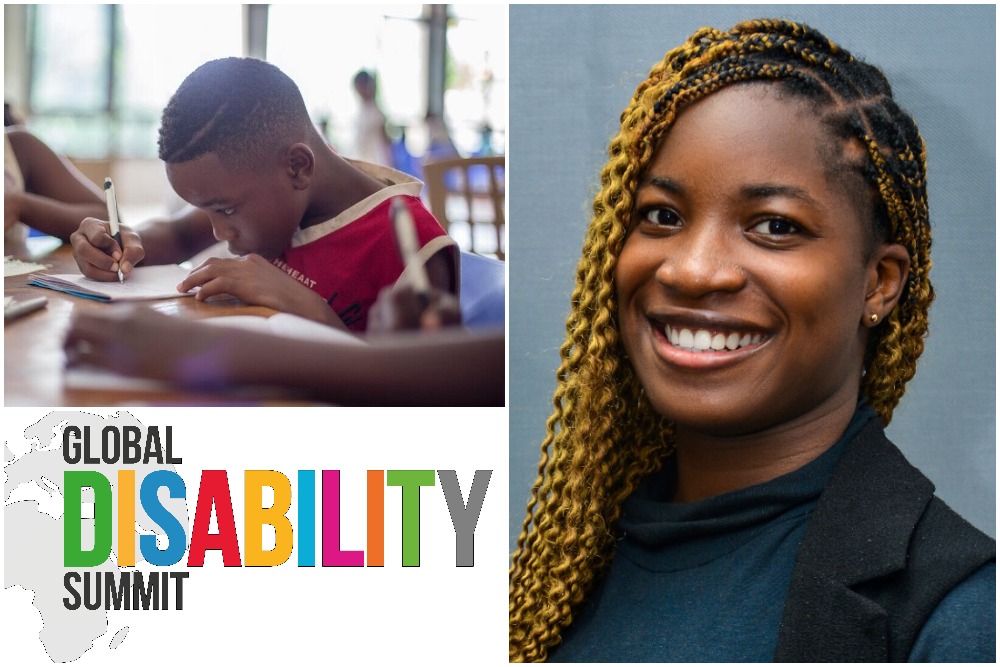
Did you know…? Key facts to help you make the case for education
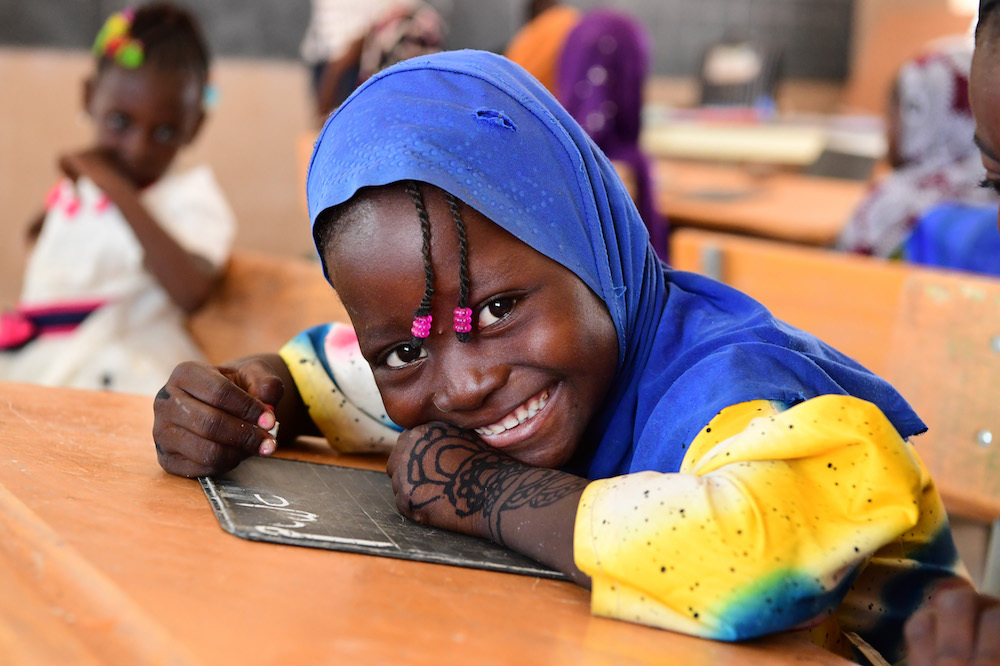
The Global Business Coalition for Education (GBC-Education)
Education can unlock big change - but spending is under threat. The Key, Theirworld's new online resource, gives you the tools to advocate powerfully for education.
The future of a generation of children is under threat – because of growing pressure on the education budgets of governments, international agencies and donors.
That’s why Theirworld and the Global Business Coalition for Education have created The Key. It’s a comprehensive online toolkit to give anyone the facts they need to advocate powerfully for education, globally or locally.
Education is the key to unlocking big change. So The Key is packed with useful information including core messages, the major challenges, quotes, questions and infographics. Covering dozens of topics, it also provides the talking points needed to make the case for education. All you need to do is: Copy. Paste. Advocate.
Here’s a flavour of The Key – just some of the hundreds of facts to help you “Make the Case” for education. Use the Key to unlock big change for millions of children now and in the future.
- Education raises individual income, especially for women. Each additional year of schooling can raise an individual’s earning by 8% to 10% – and the gain is higher for women. From the Education and Poverty page
- Increased levels of education reduce a country’s risk of armed conflict. Each additional year of schooling decreases the chance of a young person engaging in violent conflict by 20%. From Education and Public Safety
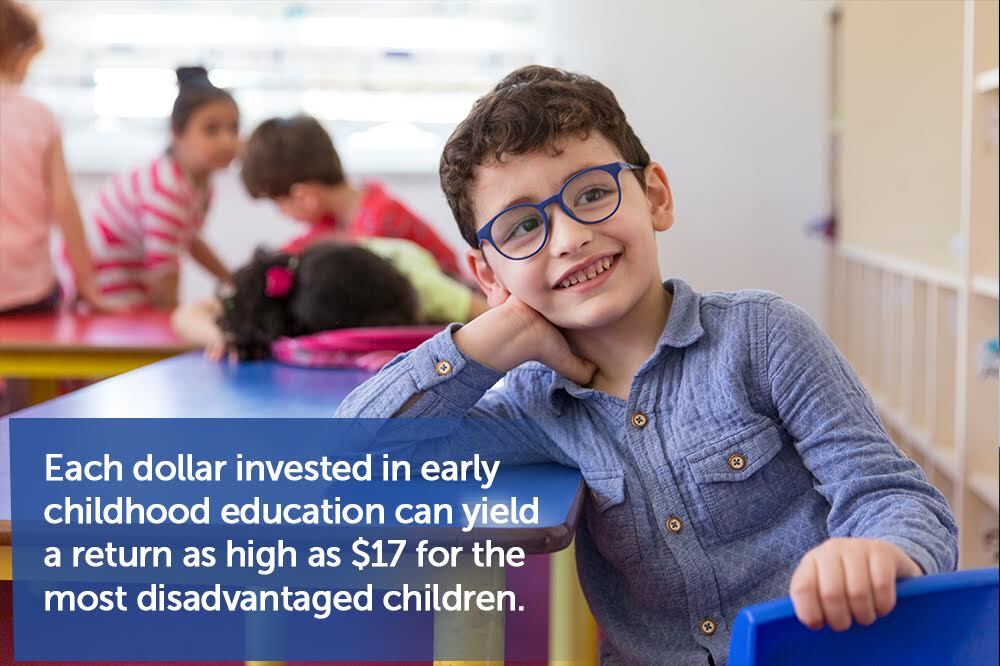
From Education and Early Childhood (Theirworld)
- Simply providing school materials can reduce child marriage. In Ethiopia, providing school materials increased enrolment and reduced the likelihood of Ethiopian girls being married as children by 90%. From Education and Child Marriage
- A single good teacher can change a child’s life trajectory. Children in primary school who have even one highly effective teacher are significantly more likely to go to college, attend better colleges, have larger salaries, higher savings, live in better neighbourhoods and are less likely to become teenage mothers. From Education and Teachers
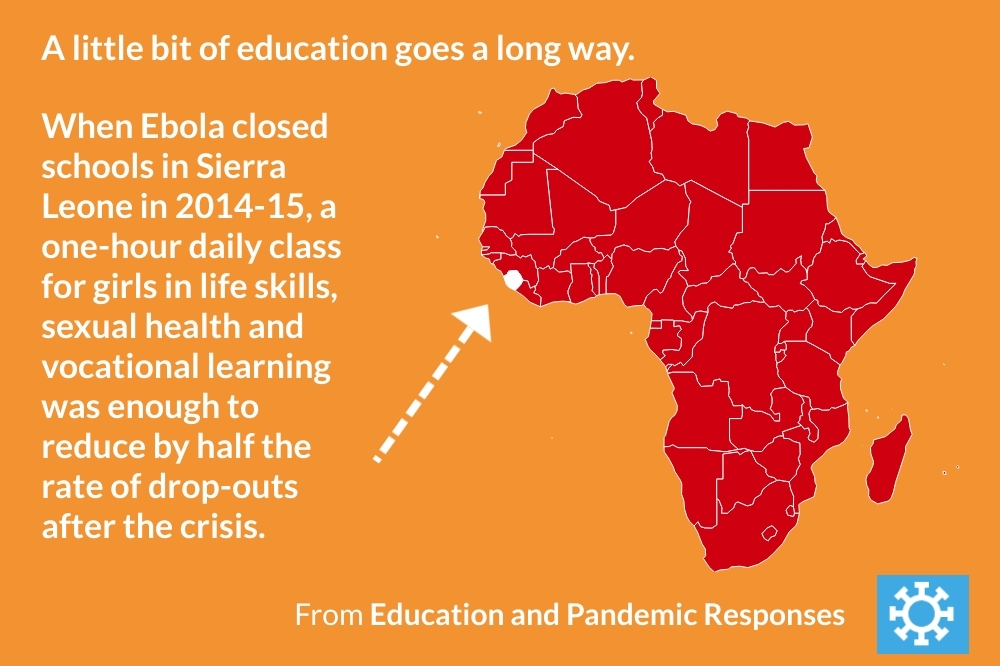
- Proper school infrastructure can provide extra capacity for children in times of crises. More than 200,000 Syrian refugee children were able to attend Lebanese public schools in 2018, receiving instruction after Lebanese children in the afternoons. From Education and Infrastructure
- Investing in the most disadvantaged generates the greatest impact. In Ghana, building nurseries for the poorest children in the poorest districts had an impact on primary completion four times that of providing nurseries to the general population. From Education and Equity
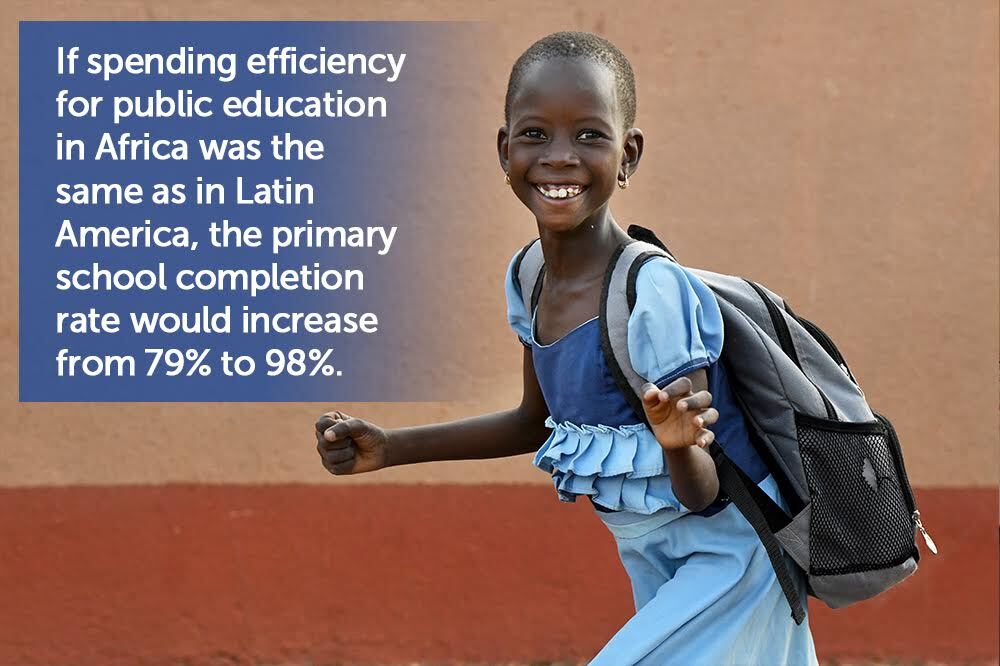
From Education and sub-Saharan Africa (UNICEF / Dejongh)
- Inclusive education is the most effective method for children with disabilities. When students with disabilities can learn in inclusive classrooms, they have higher maths and reading scores, less disruptive behaviour and increased future employment opportunities. From Education and Inclusion and Disability
- Girls’ education is vital to prevent impaired development and growth that accompanies malnutrition. If all women completed primary education, 1.7 million fewer children would be affected with stunted growth. From Education and Nutrition
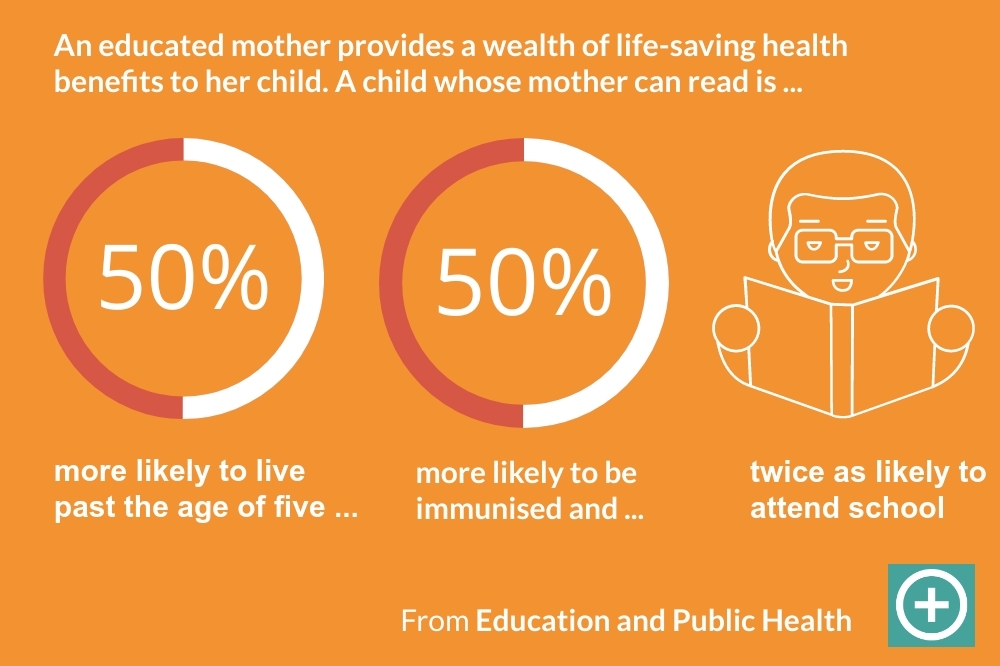
- Education creates more equitable and caring partners and fathers. Men who have completed at least some secondary education are more likely to take on a fair share of domestic work and childcare, and take paternity leave. From Education and Boys
- Education lifts children out of poverty and decreases the likelihood that their children will be impoverished. If all students in low-income countries acquired basic reading skills, 171 million people could be lifted out of poverty. From Education and Economic Growth
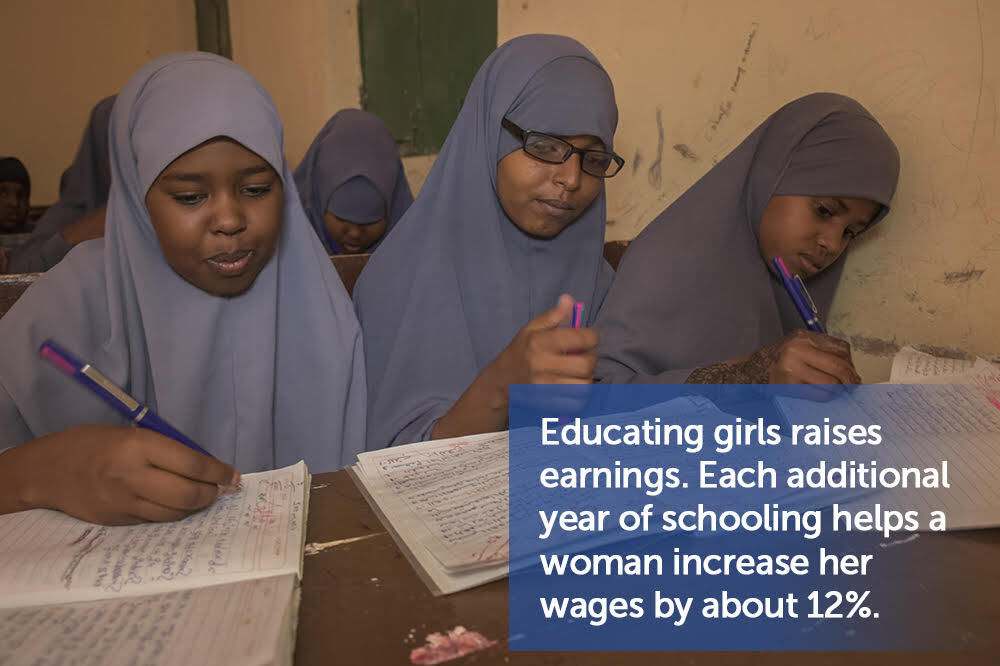
From Education and Girls (Save the Children)
- Better educated young people have better mental health. Adolescents with lower-secondary education are half as likely to experience problems related to mental health and depression than those with only a primary school education. From Education and Mental Health
- Higher levels of education reduce employment vulnerability. In 27 low- to upper-middle income countries, eight out of 10 young people with a higher education degree were in non-vulnerable employment. From Education and Youth Employment
More news

